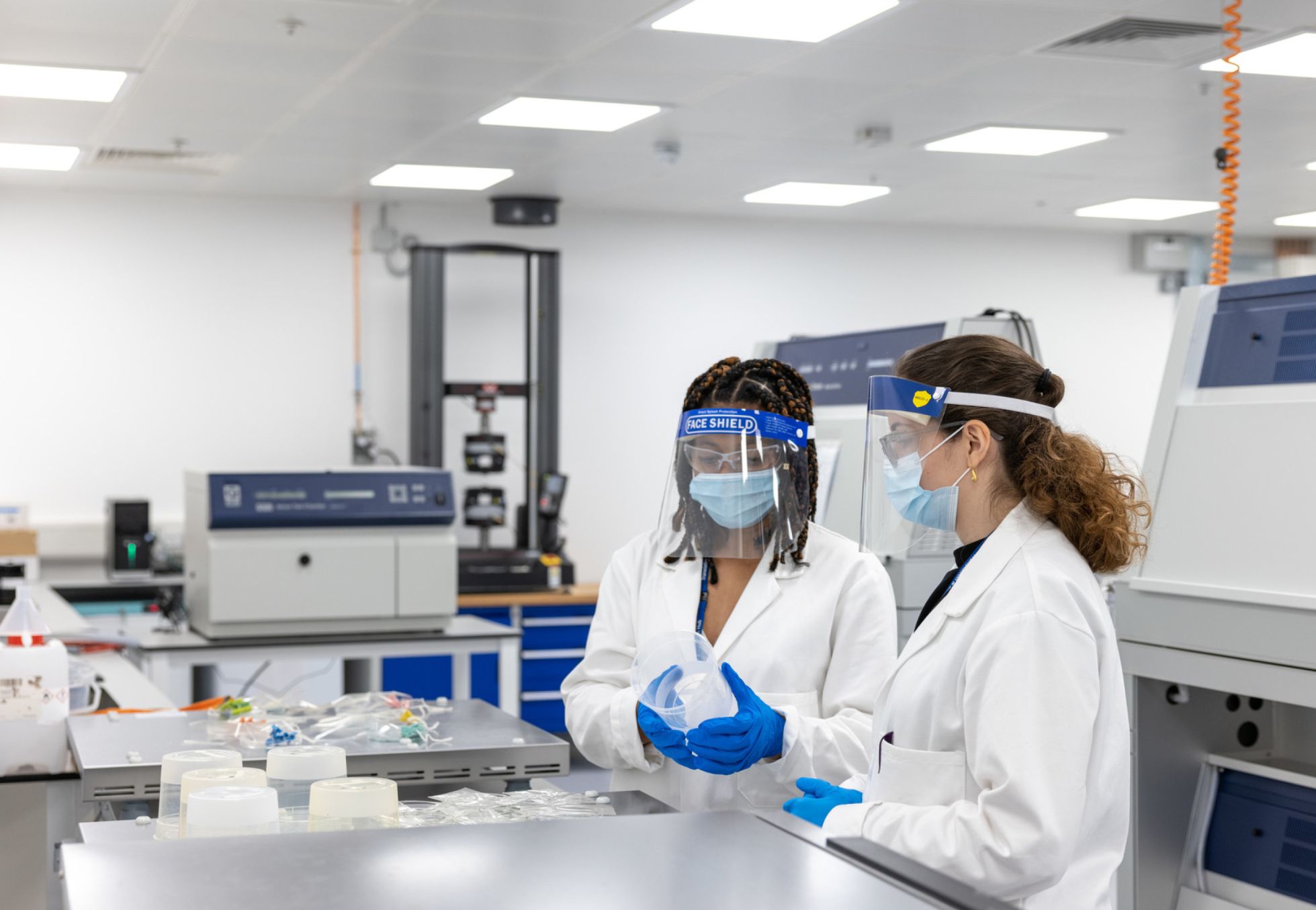
World’s first biodegradable and recyclable plastic developed by Imperial College London and Polymateria collaboration

Polymateria, a startup based at Imperial’s White City Campus, has created plastic cling film that breaks down within a year and can also be recycled.
Polymateria’s thin, flexible plastic breaks down in just 226 days but can also be recycled in UK facilities and turned into products like flowerpots or pallets, according to independent tests. As well as cling film, it could also be used for food storage bags and packaging.
Polymateria, a startup based at Imperial’s White City Campus, has created plastic cling film that breaks down within a year and can also be recycled.
Polymateria’s thin, flexible plastic breaks down in just 226 days but can also be recycled in UK facilities and turned into products like flowerpots or pallets, according to independent tests. As well as cling film, it could also be used for food storage bags and packaging.
The independent recyclability testing was conducted by the ISO-accredited Impact Solutions plastics experts in the UK.
This is the first time a polyethylene film has been independently proven both recyclable and truly biodegradable in the natural environment.
Fashion brand Pour les Femmes, founded by House of Cards actress Robin Wright, will be using the plastic in its clothing deliveries to customers and shops, it announced last week.
The company has also developed rigid plastic material for products such as disposable drinks cups, which also breaks down in the natural environment in less than a year and is in the final phases of testing for recyclability.
Changing perceptions
Most biodegradable or compostable plastics cannot be recycled, limiting their environmental benefit, and many do not break down outside of industrial composting facilities meaning that they remain a threat to marine life.
But Polymateria has pioneered innovative “biotransformation” technology that alters the properties of plastic to make it biodegradable in nature, a process that happens only when needed after the product has reached the end of its lifespan. The company’s plastic is labelled with a “recycle by” date to indicate when this is, and is also biologically modified to encourage microbes and fungi to digest it.
Polymateria chief executive Niall Dunne said:
“For too long, it has been assumed that biodegradable material cannot also be recycled. Our technology is changing perceptions. Products containing our technology should be recycled as a matter of priority, but any items escaping the system will return to nature at the right time without causing any harm.”
“As enablers of a circular economy, we invite the industry to join the growing number of partners working with us to bring a circular economy vision to life.”
Nurturing startups
Polymateria is based in the Translation & Innovation Hub (I-HUB) at White City, one of the Campus’ flagship buildings. A focal-point for White City’s deep-science and tech ecosystem, the building provides office and laboratory space for businesses, start-ups and entrepreneurs alongside Imperial’s extensive network of researchers, academics and other corporate partners.
Before moving to their own space, Polymateria was the first company to join Imperial’s White City Incubator which provides space as well as an incubation programme and entrepreneurial training to help startup companies grow and develop.
Dr Simon Hepworth, Director of Enterprise at Imperial College London said:
“We are delighted to see the progress being made by Polymateria, first at the White City Incubator and now within the Translation & Innovation Hub (I-HUB), joining a range of deep tech companies and remaining part of Imperial’s entrepreneurial ecosystem.
“As a science-focused business developing technology to address global environmental challenges, we’re proud to see them flourish and to continue our role in supporting Polymateria’s efforts to build a circular economy.”
External URL: https://www.imperial.ac.uk/news/215813/worlds-first-biodegradable-recyclable-plastic-developed/
By NEPIC
668 Views
Recent Posts
- CBAM and the Role of LCA
- Join WBD for our Imposter Syndrome Fireside Chat – 11th February @ The Wilton Centre
- Secerna Expands Life Sciences Team with the Addition of Trainee Patent Attorney
- Addison in ground breaking SAF development
- Flexitallic and TT Gaskets join forces to drive innovation within the New Energy sector
Back to News >



